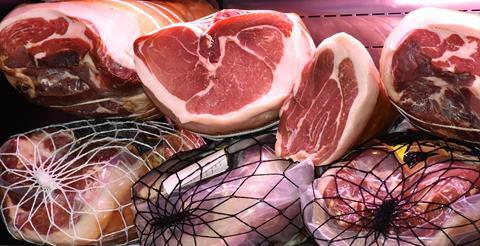Shoppers may avoid buying meat if they cannot be sure it has been produced in the UK, amid concerns that standards on imported food will slip following Brexit, new research has revealed.

Following warnings by the House of Lords EU Energy and Environment Sub-Committee that animal welfare and quality standards could drop as a result of Brexit; the survey conducted by ComRes suggests that shoppers could steer clear of the meat aisle.
Results show this would be because they can’t be sure products were farmed in Britain.
Nearly half (48%) of British adults reported to be less likely to buy meat if they cannot be sure it has been produced in the UK, while two in five (42%) place the risk of food mislabelling among their top three concerns for imported food standards following Brexit.
The UK currently imports half of all its food, with over 40% of imports coming from the EU or countries with EU trade deals.
Grant Cochrane, CEO of Oritain, said: “Shoppers are increasingly looking for assurances of where their food is from and now we’re seeing their trust in imported products waning.
“Modern food supply chains are incredibly complex – food can cross multiple borders and pass through many hands before it reaches our shelves. With each exchange the risk of fraud and malpractice increases.
“Testing the intrinsic properties of food offers the assurances of origin that shoppers are looking for, rather than relying on labels or additives that can be forged or tampered with.”
Shoppers are now placing value on food provenance with 71% reporting it was important to know where their food was produced when deciding what to buy.
It is reported that forensic science techniques traditionally used by crime scene investigators are now enabling food manufacturers to test the provenance of their products by verifying their origin.
This story was originally published on a previous version of the Meat Management website and so there may be some missing images and formatting issues.















